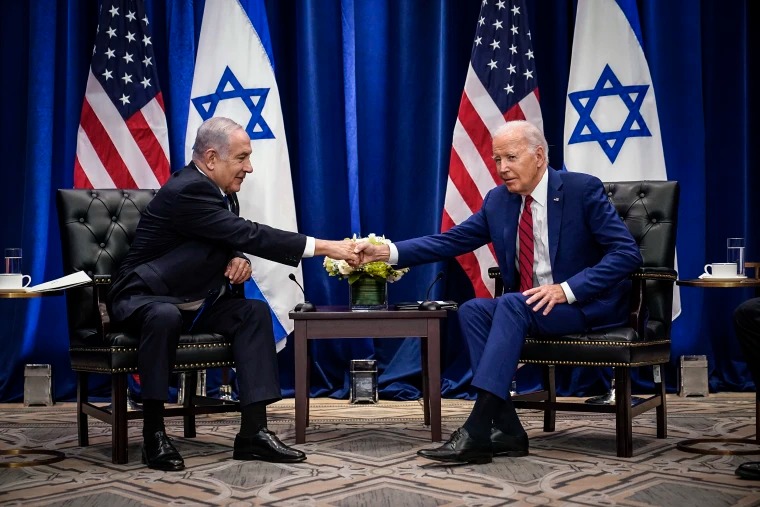President Joe Biden and Israeli Prime Minister Benjamin Netanyahu engaged in an extensive discussion on Sunday regarding a potential deal for the release of hostages in Gaza. While a framework has been established, there are existing gaps that need resolution, according to a senior administration official.
The call, the first since January 19, covered Israel’s ongoing Gaza campaign, the return of hostages held by Hamas, and concerns about Israel’s anticipated ground assault on Rafah. The President emphasized the shared goal of defeating Hamas and ensuring Israel’s long-term security.
The discussion, lasting approximately 45 minutes, focused significantly on the release of hostages, with acknowledgment of remaining substantial gaps.

Biden and Netanyahu (Credits: The Hill)
Biden reiterated his stance that a military operation in Rafah should only proceed with a credible and executable plan for the safety and support of the more than one million people sheltering there.
Netanyahu previously mentioned the IDF’s intention to enter Rafah, Hamas’ last bastion, prompting concerns about the potential humanitarian impact. Biden’s call with Netanyahu followed his recent criticism of Israel’s military conduct in Gaza, describing it as “over the top.”
The President also emphasized the need to open up Gaza for more humanitarian aid. However, the call did not specifically address these comments.
Last week, Secretary of State Antony Blinken expressed concern about the high civilian toll in Gaza, emphasizing the displacement of nearly 2 million people, acute hunger, and loss of lives.
The Israeli offensive, initiated after a Hamas attack four months ago, has resulted in significant humanitarian consequences, with a large number of casualties and the Gaza population facing the risk of famine.
A cessation of fighting is considered essential to both short- and long-term objectives for Gaza amidst increasing international and domestic pressure to end the conflict.
Earlier on Sunday, Biden also held discussions with key officials, including Blinken, CIA Director Bill Burns, Vice President Kamala Harris, and national security adviser Jake Sullivan.























